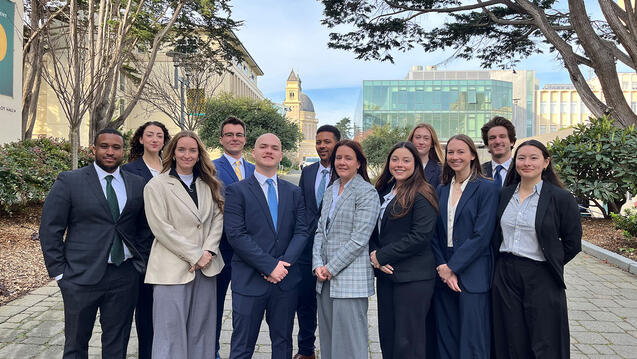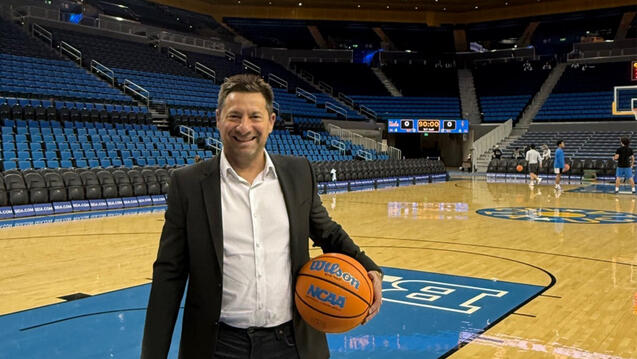Writing Professionals Offer Career, Publishing Advice to MFA Students
For the annual event “Life After the MFA,” the MFA in Writing program invited successful professionals to offer students advice on getting published and finding work after graduation. Following a panel discussion, students had the opportunity to interact with the panelists during a Q&A session.
Panelists included Lisa Abellera, a literary agent for Kimberly Cameron & Associates; Jenny McKeel, an essayist, web producer at USF, and former editor for Wired magazine; Jesse Nathan, poetry editor for McSweeney’s Books; and Genanne Walsh, a novelist, freelance editor, and grant writer.
Career Paths for MFA Students
For students considering or currently pursuing an MFA, there’s often concern that the degree won’t translate to a career. But Walsh, who received her MFA from Warren Wilson College, said there are ample job opportunities for writers. She once worked for a high-power executive writing email cover letters, simply because her boss lacked the ability to do it herself.
If you write well, you take it for granted, but a lot of people can’t write. Recognizing that skill as a marketable quality is important.
The writing skills she polished during her MFA allowed her to eventually find steady work as a grant writer for nonprofits, which she says is a viable path for any MFA student. One student asked how to get started doing grant work if you’ve never done it before. Walsh recommended San Francisco’s Foundation Center, which offers professional development classes. She also encouraged students to take to LinkedIn, where she sees a lot of requests for volunteer grant writers — which, if you’ve never written a grant before, can be a great way to gain experience and go on to find a paid position.
Like volunteer work, internships are another way MFA students can gain professional experience. Nathan started at the San Francisco-based publishing company McSweeney’s as an intern in 2007, and now he’s the poetry editor. He said that working as an editor at a publishing company can be an empowering career option for a creative writer.
"After you get your MFA, get involved in editorial work. It’s a great way to hone one’s writing skills."
McKeel chipped in freelance magazine writing as another viable path for MFA graduates. Now that most magazines have gutted their staff writers, they look to freelancers for articles. She encourages anyone interested in magazine writing to pitch editors and pitch often. She emphasized the importance of knowing what specific editors do, because pitching the right editor will give you a better chance of success.
“Editors really do rely on good freelance work coming in,” she said.
Publishing Advice for New Writers
Abellera, a literary agent, provided insight on the different avenues to publication: self-publishing, small presses and imprints, mid-tier publishing houses, and the “Big Five”: Penguin Random House, Macmillan, HarperCollins, Hachette, and Simon & Schuster.
There’s nothing wrong with any of these publishing routes. It depends on how you want your literary career to unfold.
Self-publishing and small imprints are by far the quickest and easiest routes to publication. But if you aspire to be published with the Big Five, the road to publication is going to take a lot longer and be a lot more difficult. You also need an agent.
While Abellera said she’s not the rule, she doesn’t accept unsolicited manuscripts. She only considers writers whom she has met. With that in mind, she emphasized the importance of networking with agents at writers’ conferences. When students asked her the best conferences for meeting agents, she recommend the Pacific Northwest Writer’s Association (PNWA), the San Diego Sate University Writers’ Conference, and the San Francisco Writers Conference.
Abellera also encouraged students to get active on social media — especially Twitter — because it’s another good way to meet and connect with literary agents. She and many other agents often participate in Twitter Pitch Parties, which give writers the opportunity to pitch their novels.
“Life After the MFA” is a two-part series hosted annually by the MFA in Writing program. The panel discussion was part two. Part one was held in the fall and focused on teaching, fellowships, and journal submissions.


